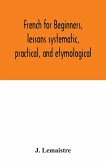"The Hundred Years' War," lasting much longer than one hundred years, was repeatedly interrupted by long periods of "absence of war." The primary cause of the hostilities was the need for the English to preserve their rights to Guyenne rather than the much-touted dynastic pretensions in France. All seemed lost for the Kingdom of France on the evening of Saint Crispin's Day, 1415. The rain had been heavy for long hours and in the muddy fields of Agincourt the mounted, vainglorious French knights had been easy prey for Henry V 's deadly Welsh archers. The divided, demoralized country in the hands of a mad king was on the verge of total collapse. Then, Joan, a young maiden from the village of Arc, appeared. Guided by the sincere belief that she was doing God's will she convinced the king and the battle-hardened French knights to let her lead the French armies. The Kingdom of France was miraculously saved. Sixty years after Agincourt, while the French cannons and gunpowder were rendering knights and archers obsolete, the French King Louis XI wined and dined Edward III and bribed him to return to England. During the Hundred Years' War the popes moved to Avignon in France because Rome and the papal states were too dangerous. The biggest danger, though, for anyone in Italy and elsewhere in Europe was "Yersinia pestis," the bacterium causing the plague that killed one-third its population. All this and more make this often misunderstood period worth discovering and "The Very Long Hundred Years' War" an informative non-academic read.
Hinweis: Dieser Artikel kann nur an eine deutsche Lieferadresse ausgeliefert werden.
Hinweis: Dieser Artikel kann nur an eine deutsche Lieferadresse ausgeliefert werden.








